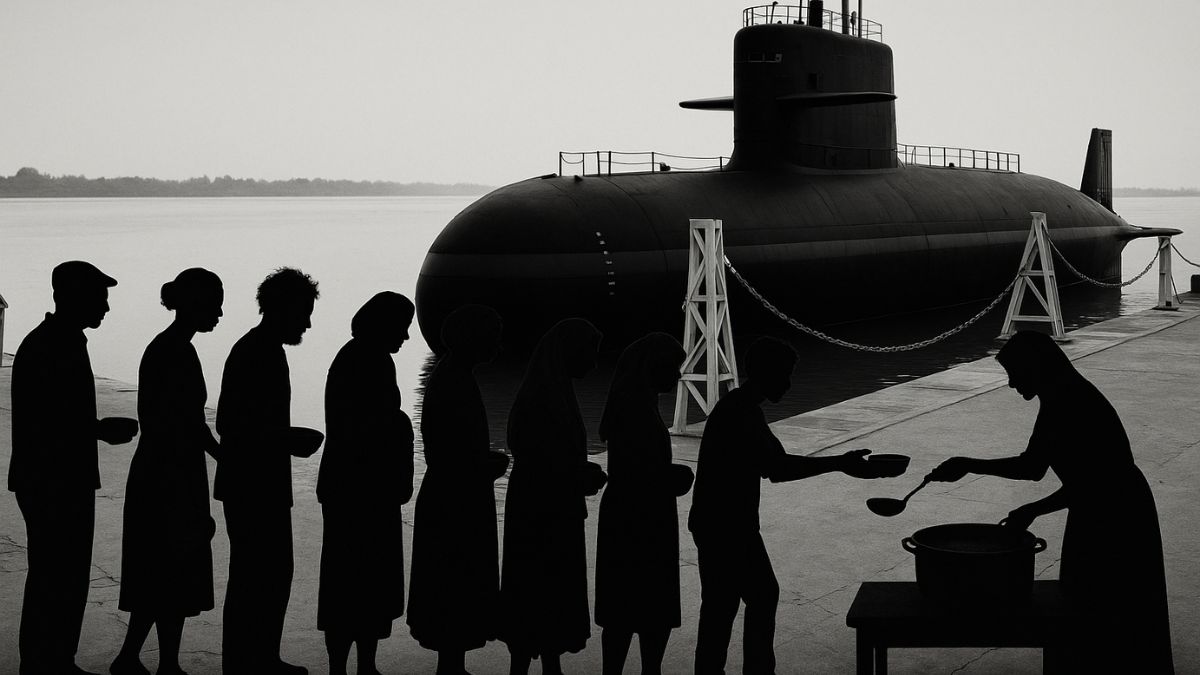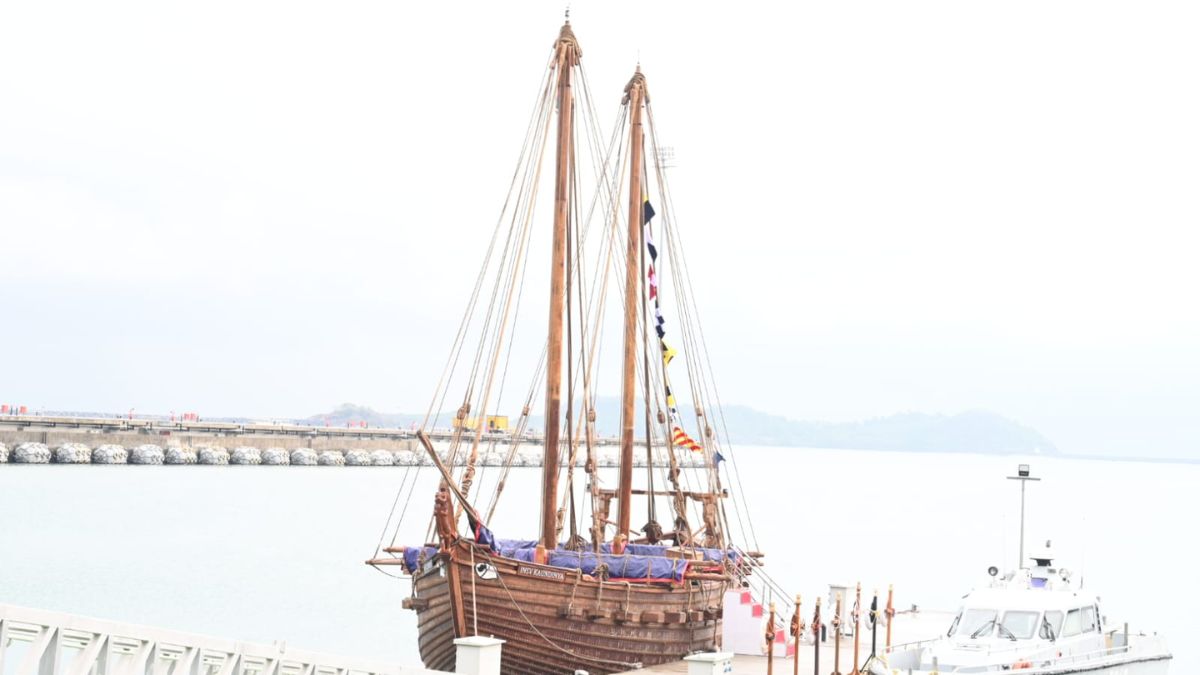Submarines Or People: The Cost Of Pakistan’s Misplaced Priorities

The widespread poverty in Pakistan has not been a barrier for decision-makers to prioritise big-ticket purchases such as submarines over funding social safety nets. Image courtesy: AI-generated picture via DALL-E
In rural Pakistan, families often struggle with the most basic needs. Parents skip meals, children are pulled from school, power cuts disrupt daily life and healthcare remains uncertain. Yet in Islamabad, officials gather with ceremony to welcome the launch of another Hangor-class submarine from China.
The contrast could hardly be starker. Billions of dollars are funnelled into advanced military assets while social safety programmes such as the Benazir Income Support Programme (BISP) suffer chronic underfunding and mismanagement. The gulf between national priorities and the everyday lives of citizens is widening.
What is happening to Pakistan’s welfare schemes?
BISP, launched in 2008 to provide direct cash transfers to vulnerable households, is a vital lifeline for millions. But repeated audits have revealed serious flaws: embezzlement, disbursal delays and payments wrongly claimed by government officials and pensioners. The Public Accounts Committee has said that funds meant for the poorest were diverted, with no mechanisms in place to recover the money.
For families facing spiralling inflation and food insecurity, these failures deepen their hardship. Delays in disbursement mean missed meals and mounting debt. At the same time, reforms have stalled, leaving the programme unable to meet growing demand.
How do defence budgets compare with welfare spending?
The sums speak for themselves. The ongoing Hangor-class submarine programme, involving eight boats built with Chinese support, carries a price tag of $4–5bn. By contrast, the entire BISP allocation for 2024–25 is around PKR 593bn (just over $2 billion). One submarine deal alone could more than double BISP’s annual reach.
Meanwhile, Pakistan’s defence budget has risen to PKR 2.12tn ($7.6bn) for 2024–25, a 16% increase on the previous year. Defence allocations rise, even as welfare spending remains flat under IMF-mandated austerity. Beyond submarines, Islamabad continues to fund JF-17 Block III fighters and modernisation of nuclear delivery systems, making its arsenal the fifth-largest in the world. Yet, the World Food Programme estimates that 36% of Pakistani households face food insecurity.
Why does this imbalance matter?
Experts argue that resilience at home, built on food security and reliable cash transfers, is a form of national defence in itself. Poverty alleviation creates stability, reducing the risk of unrest and political volatility. Deterrence, they say, is not only measured in missiles and submarines but also in the confidence that citizens will not go hungry.
Pakistan’s long-term security may depend less on costly military hardware and more on investment in its people. Until welfare is treated as seriously as weapons procurement, the paradox of hungry citizens and gleaming submarines will remain.







